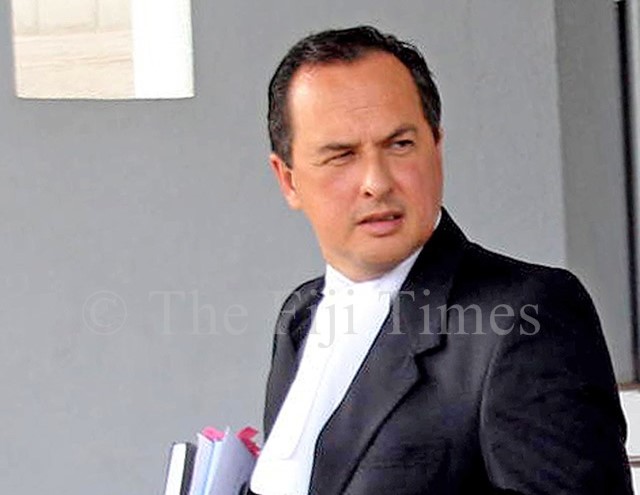RESIGN or face disciplinary action.
That is the call from the Fiji Law Society (FLS) to Justice David Ashton-Lewis in the wake of his interview with an Australian radio station where he revealed findings from the Malimali Commission of Inquiry report.
Information divulged in that interview, said FLS president Wylie Clarke, was confidential.
“Justice David Ashton-Lewis is a judge of Fiji’s highest court, the Supreme Court of Fiji,” Mr Clarke said in a statement released by the FLS yesterday.
“He is currently better known as the Commissioner of the Commission of Inquiry (COI) into the appointment of Ms Malimali as the Commissioner of FICAC. That role ended when he delivered the COI Report to the President a month ago, on 2 May.
“The interview he gave to a Queensland radio station on 29 May, in which he discussed a number of confidential COI matters, has now compromised both the COI and his judicial office.”
The commissioner’s statements and actions, said the FLS, were inappropriate “for a judge of the Supreme Court of Fiji”.
“Judges at every level of Fiji’s court system are expected to be politically independent.
“They are expected to exercise careful discretion to comment on the matters in which they are involved either in the most neutral and sensitive terms, or (in most cases) not at all.
“Justice Ashton-Lewis’s intemperate comments, including his many references to his engagement with the Prime Minister, suggest he does not understand his role either as a Supreme Court judge or a commissioner.”
Mr Clarke said independence from the Government and political actors was a “fundamental requirement” for any judge.
“In view of his comments, no one appearing before a Supreme Court bench on which Justice Ashton-Lewis sits can be confident that the Supreme Court will look fairly and independently at any legal issue without a political element.”
FLS urged Justice Ashton-Lewis to resign from the Supreme Court of Fiji or face disciplinary proceedings under Section 112 of the Constitution.
“Fiji has made significant progress since 2022 to ensure judicial independence and stronger and more robust courts. It cannot be seen to compromise on standards of judicial conduct and independence, particularly at the level of its highest court.
“The Fiji Law Society has, in the past, been prepared to challenge and take to court questions of the suitability and qualifications of judicial officers. If necessary, it will do so again.”



